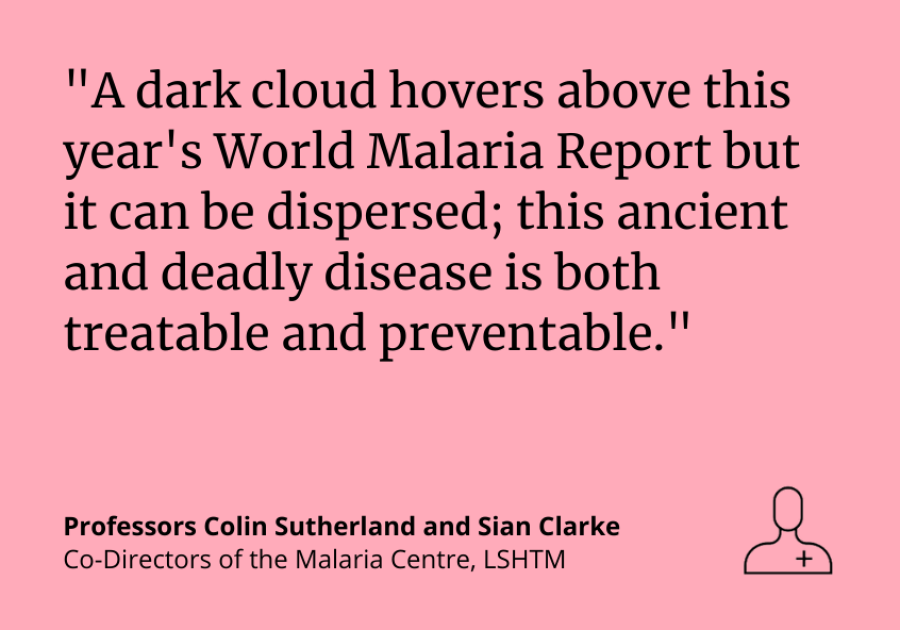
Over the last 20 years, annual analysis by the World Health Organization has brought good malaria news. Cases and deaths have steadily decreased since the turn of the millennium, although this progress has plateaued in recent years.
But things are very different in 2021.
This year’s World Malaria Report found deaths were at their highest for nearly a decade with an estimated 627, 000 worldwide in 2020.
Disruptions in the delivery of malaria services to those most in need contributed to a considerable increase in malaria cases and deaths, with about two thirds of additional malaria deaths (47,000) due to delays in the provision of malaria prevention, diagnosis, and treatment during the pandemic.
With the added threat of COVID-19, not only impacting populations but also supply chains and diagnoses, malaria is on the rise again. And whilst COVID-19 isn’t too dangerous for the world’s most vulnerable, malaria is, and it’s a much bigger killer than we thought.
Read the expert opinion from Professor's Colin Sutherland and Sian Clarke, Co-Director's of the Malaria Centre at the London School of Hygiene & Tropical Medicine
LSHTM's short courses provide opportunities to study specialised topics across a broad range of public and global health fields. From AMR to vaccines, travel medicine to clinical trials, and modelling to malaria, refresh your skills and join one of our short courses today.
